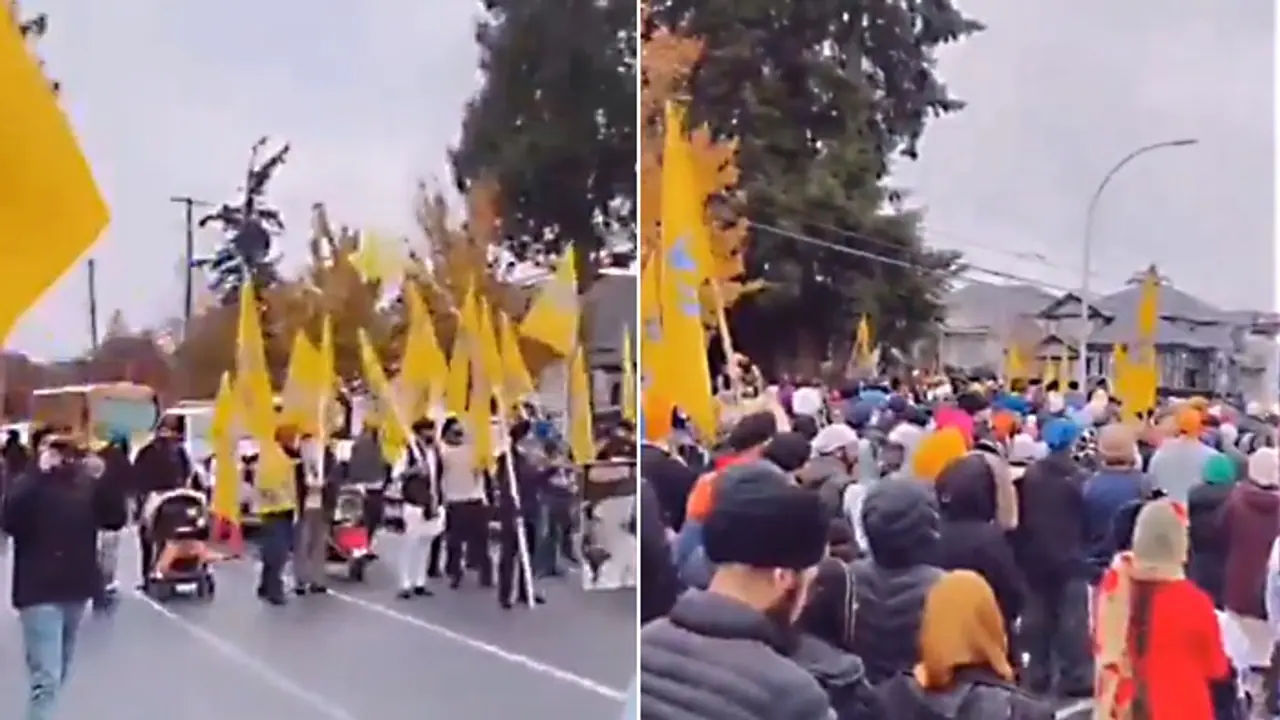A group of Khalistani protesters in Canada's Surrey were recently seen chanting, "We are the owners of Canada and white people should go back to Europe and Israel."
The political tension between pro-Khalistan activists and Indian communities in Canada has escalated as a group of Khalistani protesters in Surrey, British Columbia, were recently seen marching and chanting, "We are the owners of Canada" and "White people should go back to Europe and Israel."

This rhetoric has sparked outrage and fear within local communities, particularly among Indian and Hindu groups, already on edge from recent clashes.
Hindu temple cancels consular event
The provocative march follows a high-profile incident earlier this week, where the Brampton Triveni Temple in Ontario canceled an event organized by the Indian Consulate due to a “high and imminent” threat of violent protests. The consular Life Certificate event, originally scheduled for November 17, was intended to serve Indian pensioners. However, a warning from Peel Regional Police led temple authorities to cancel it, citing the need to prioritize the safety of devotees and the public.
"...We must make the appropriate decision to cancel to ensure the safety of Brampton Triveni Mandir devotees, community visitors, and the general public," the temple authorities said in a statement.
"We are deeply saddened that Canadians now feel unsafe coming to Hindu Temples in Canada," it added.
Peel Regional Police denies receiving any direct threats
Peel Regional Police, in response, clarified that no specific threats were received against places of worship. They acknowledged community concerns and noted increased police presence at religious sites to reassure the public. Additionally, police said they were actively engaging with community leaders to de-escalate the heightened tensions and suggested a postponement of consular events.
The incident at the Triveni Temple follows a similar disruption on November 3, when Khalistani protesters clashed with attendees at the Hindu Sabha Temple in Brampton during an event co-organized by the temple and the Indian Consulate. This ongoing unrest has cast a spotlight on Canada’s handling of pro-Khalistan activism and community safety.
The Indian government has expressed concern about the safety of its nationals in Canada. Last week, India’s Ministry of External Affairs condemned the attacks on Hindu places of worship, calling for accountability from Canadian authorities. The ministry emphasized its expectation that those involved in violent protests would face legal consequences.
These tensions between Canada and India have been simmering since last September, when Canadian Prime Minister Justin Trudeau alleged possible Indian government involvement in the death of Khalistani separatist Hardeep Singh Nijjar. India categorically rejected these accusations, labeling them as “absurd.” Nijjar, a Canadian citizen, was designated a terrorist by India.
While Canadian authorities have been monitoring the situation and engaging with community leaders, calls for stronger action are mounting, with public pressure on both the Canadian and Indian governments to address the risks posed by the ongoing hostilities between pro-Khalistani groups and other Canadian communities.
